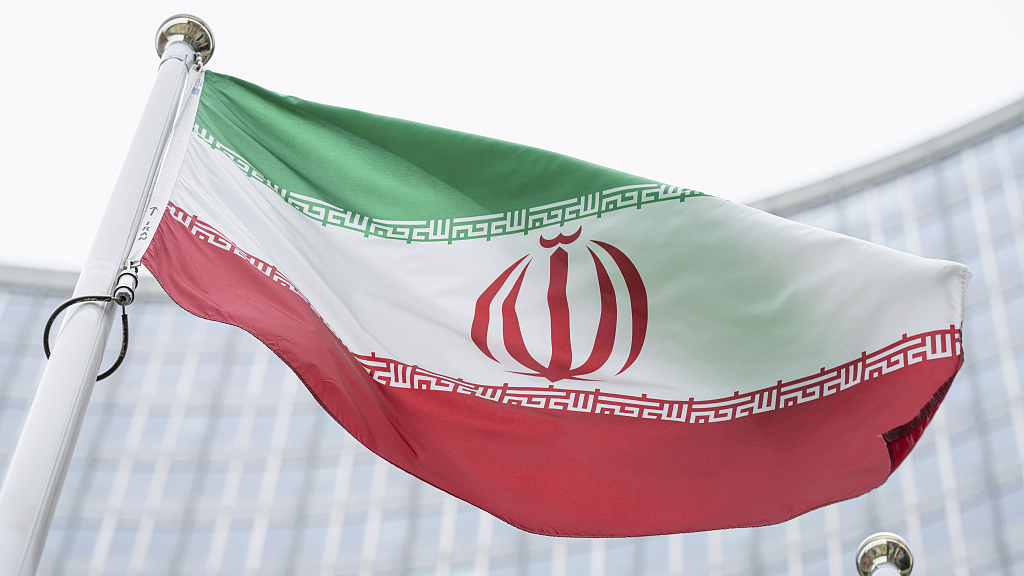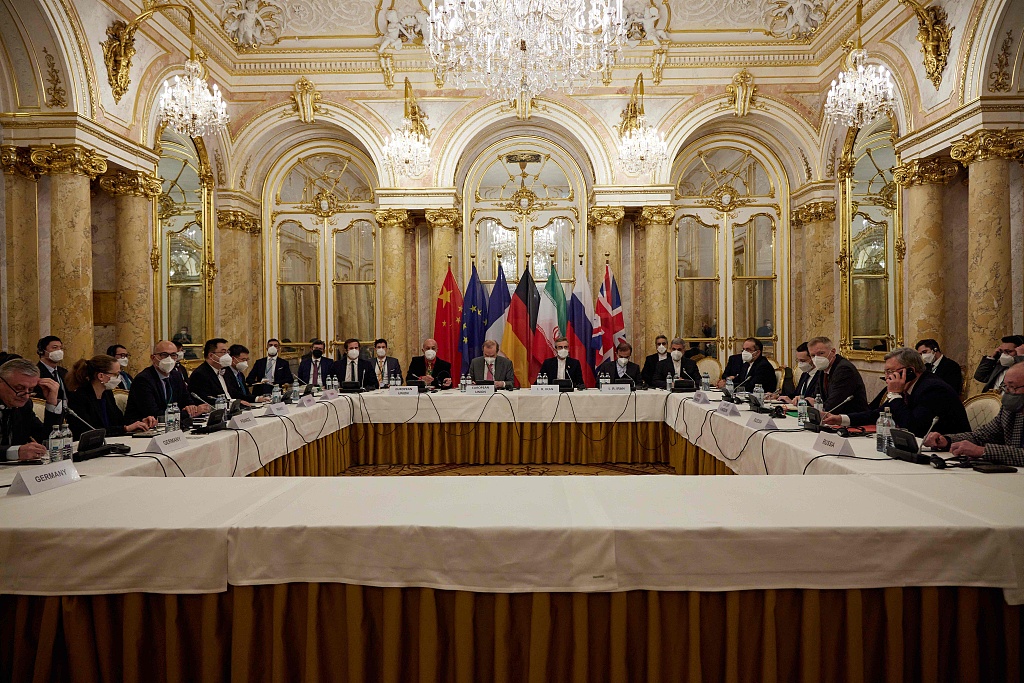
The Iranian flag flutters in front of the International Center building with the headquarters of the International Atomic Energy Agency, Vienna, Austria, May 24, 2021. /CFP
The Iranian flag flutters in front of the International Center building with the headquarters of the International Atomic Energy Agency, Vienna, Austria, May 24, 2021. /CFP
Editor's note: Hannan Hussain is a foreign affairs commentator and author. He is a Fulbright recipient at the University of Maryland, the U.S., and a former assistant researcher at Islamabad Policy Research Institute. The article reflects the author's opinions and not necessarily the views of CGTN.
Talks aimed at resurrecting the 2015 Joint Comprehensive Plan of Action (JCPOA) are now in their final stages following the Biden administration's restoration of key sanctions waivers to Iran. The latter's call for Western guarantees that satisfy their nuclear deal obligations is also a key element in shaping the talks' result-oriented focus in Vienna. "Despite the limited progress in the Vienna talks, we are still far from achieving the necessary balance in the commitments of the parties," said Secretary of Iran's Supreme National Security Council Ali Shamkhani. "Political decisions in Washington are requirements for balance of commitments to reach a good agreement."
To come through on concrete U.S. guarantees, Washington must make a compelling case for its future adherence and verifiable compliance to any revised deal. That objective is presently being undermined by the Biden administration's contradictory stance on restored sanctions waivers. On the one hand, the administration wants the restored waivers to be seen as a move that "would help to close a deal on a mutual return to full implementation of the JCPOA." But if that is genuinely the case, a major irritant is the administration's own refusal to characterize the move as an advancement towards tangible sanctions relief for Iran. Offering a snapshot of this discord is the administration's insistence that until or unless "Tehran returns to its commitments" under the JCPOA, sanctions relief is off the table.
That line of argument is a dying rationale, and risks exacerbating Washington's credibility crisis as talks move into their make-or-break phase in Vienna. First, U.S. attempts to condition credible sanctions relief on Iran's so-called return to JCPOA commitments have no weight. This is because the onus is on Washington – not Tehran – to compensate for the unilateral U.S. withdrawal from the 2015 agreement. A case in point is the sanctions waivers themselves. Their restoration by Biden is more a case of course correction than genuine policy discretion. Especially considering that these were the same waivers rescinded under former U.S. President Donald Trump, and thus demanded a change on the Biden administration's part so that its JCPOA intent could be seen more than just rhetoric.

The Joint Committee of the JCPOA holds its eighth-round negotiations in Vienna, Austria, December 27, 2021. /CFP
The Joint Committee of the JCPOA holds its eighth-round negotiations in Vienna, Austria, December 27, 2021. /CFP
Second, signaling sanctions relief as some form of reserved leverage over Tehran is increasingly at odds with current negotiation priorities in Vienna. After all, negotiators remain focused on the objective of expediting the JCPOA's restoration with only weeks to go. Given the time sensitivity involved and the increasingly small margin for deadlocks, confidence-building measures between Tehran and Washington could promote the objective. Ambiguous defenses for unilateral U.S. sanctions against Iran, however, could easily undermine it.
Tehran's call for political, legal and economic guarantees are both legitimate and justified at this stage. "We demand guarantees in the political, legal and economic spheres. Certain agreements have already been reached," said Iranian Foreign Minister Hossein Amirabdollahian.
The absence of these guarantees makes it difficult to attribute certainty to future U.S. compliance with a revived deal. It also keeps alive the possibility of a future U.S. withdrawal from any hard-fought arrangement, jointly underscoring the legitimacy of concrete safeguards extracted from the U.S.
It is here that delivering on those very safeguards is in some of Washington's interests. For instance, headway on political, legal and economic guarantees could prove essential in avoiding a "no deal" scenario with Tehran. That outcome matters more to the Biden administration than it cares to admit, given that the absence of an active deal is also what motivated Biden to pursue JCPOA's revival.
Above all, Washington's constraints show in a senior U.S. State Department official's remarks to Reuters: a no-deal scenario with Iran would require Washington to step up pressure through economic, diplomatic and other means. Understand that similar tactics were once exercised by Trump, deliberated by Biden, and feared unrewarding enough for negotiations to be where they are today.
As a result, firm U.S. commitments against such anti-Iranian escalations – communicated in the form of verifiable guarantees to Tehran – are essential to breaking new ground in Vienna. It also offers Washington another lifeline to tell its rhetoric from practice.
(If you want to contribute and have specific expertise, please contact us at opinions@cgtn.com.)

